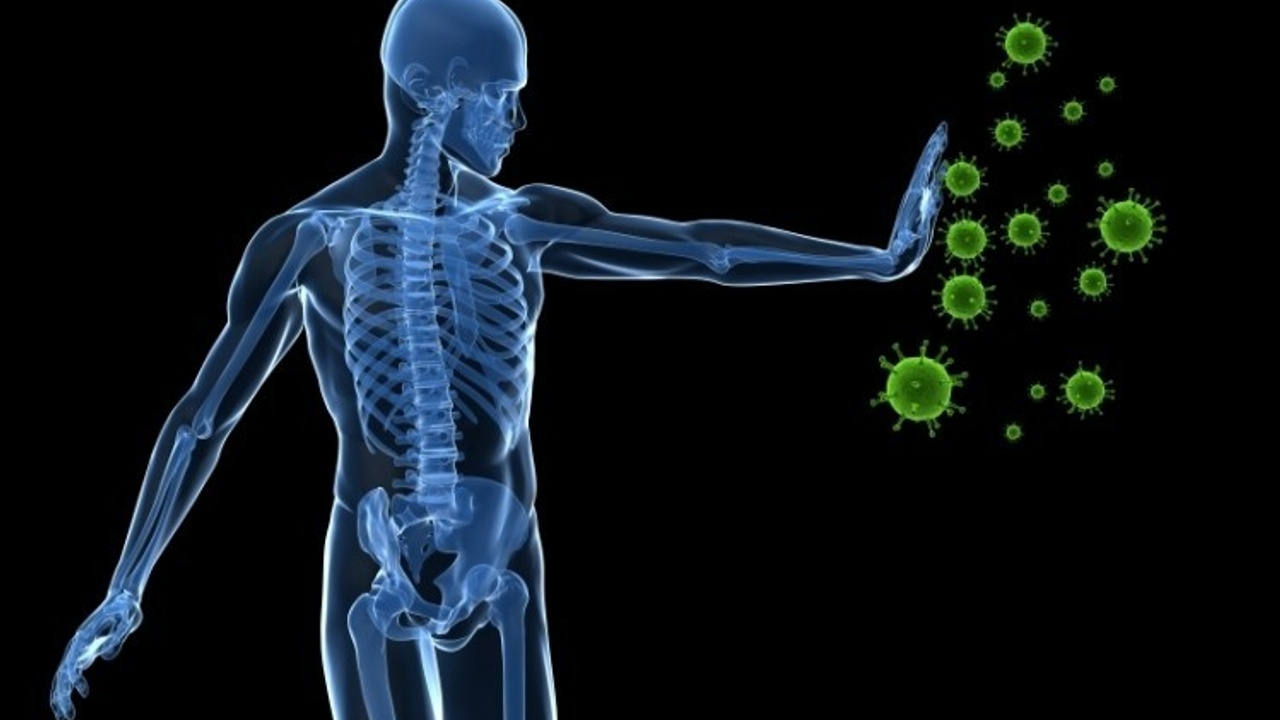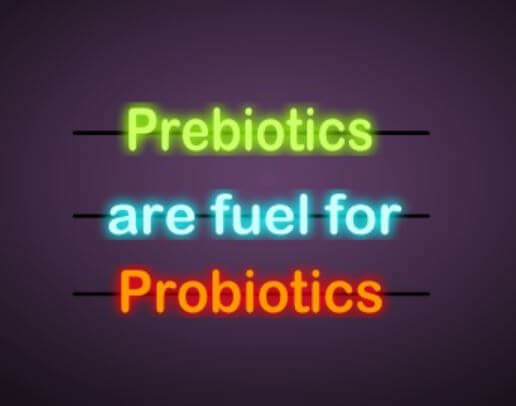Prebiotics and Probiotics for Athletes
May 06, 2022
Prebiotics: Probiotics why is everyone talking about them and do you actually know what they are?!
Probiotics and prebiotics are hot topics in the world of nutrition and all over every magazine and social media article, from suggestions of helping with gut issues, the effect on the gut-lung axis in Covid -19 to the gut-brain axis and mental health.
So what exactly are they?
Probiotics and prebiotics are important for gut health and can contribute to the gut microbiome ( “the collective genetic material of a community of microorganisms in a specific environment”).
It is now widely accepted that our gut microbiome plays a key role in health and performance. Research has shown that our gut microbiome is important for immunity, the production of vitamin K and short-chain fatty acids (SCFA), in particular butyrate, which may reduce the risk of type 2 diabetes, obesity and heart disease.
Where do we find probiotics in food?
These include fermented dairy products, tempeh, kimchi, kombucha and possibility sauerkraut.
What are Probiotics?
Probiotics are live bacteria found in certain foods and supplements considered to be beneficial or ‘good’ for our health. They are defined by the World Health Organisation (WHO) as ‘microorganisms which when administered in adequate amounts confer a health benefit on the host’, (WHO, 2011).
What are Prebiotics?
These are indigestible fibres found in foods that feed the bacteria.
So essentially in a simplistic explanation, it is probiotics that are live bacteria and probiotics are the fibre that feeds them!

Where do we find probiotics in food?
These include fermented dairy products, tempeh, kimchi, kombucha and possibility sauerkraut.
Where do we find prebiotics in food?
Prebiotics in food are fructo-oligosaccharides and include leeks, garlic, asparagus and inulin including bananas, artichoke and onions.
Yes, if you are wondering these are highly fermentable and may cause wind!
There is now a plethora of probiotics and prebiotic products and foods available, but the quality is highly varied and not all of them will confer a health benefit or may survive the gut acid and hostile conditions to reach the large intestine intact.
There is a strain-specific nature of the effects of probiotics.
Both the formulation and the type of probiotic are key to ensuring that they reach the large intestine. Not all probiotics may survive the stomach acid.
Foods are no longer able to be classed as probiotics because they do not meet the guidelines below. This is often because they are not tested to the same level, but also because they may contain a strain without supporting evidence of conferring a health benefit or not enough bacteria.
You may see them labelled as live, good gut, gut-friendly etc.
However, this does not mean that foods containing probiotics do not confer a health benefit.
To be classed as a probiotic they must be:
- Labelled with the genus, species and strain (e.g., the name of the bacteria Lactobacillus, the species e.g., acidophilus and strain e.g., LA5
- Be tested for safety and efficacy
- Proven to confer a health benefit
- Be a sufficient dose (107 to 1011 CFU – colony-forming units [6])
- Able to reach the large intestine
- Able to adhere to the gut wall
What conditions can they help?
Probiotics can confer a health benefit by reducing the number of pathogenic microbes in our gut. They adhere to the gut wall and reduce the number of adhesion sites available for pathogenic bacteria, they also compete for available nutrients and some strains produce antimicrobial compounds. Probiotics can increase the production SCFAs (short-chain fatty acids) which are important for cell function in the colon lining which protects us from viruses and ‘bad’ bacteria. They can improve our immune response through the increase of immune cells, regulate intestinal transit and synthesise vitamins such as vitamin K.
There is now substantial evidence to support the effectiveness of probiotics in the treatment of infectious diarrhoea (bacterial not viral), antibiotic-related diarrhoea, travellers diarrhoea, and reducing the incidence of upper respiratory tract infections (UTRI) ulcerative colitis, IBS and functional gastrointestinal disorders (3). Interestingly, research suggests that probiotics are not effective for Crohn’s or acute pancreatitis, although there is ongoing research.
There is some interesting research into strains of probiotics that can influence the gut-brain axis known as psychobiotics. Early research shows that they may improve some mental health conditions such as depression, anxiety and neurodegeneration. However, the research is still in its infancy and is mainly based on animal studies.
It is important to note that the health benefits of probiotics are strain- and dose-dependent and there is a lack of clear guidelines on when to use probiotics and the best strain for different GI conditions. Different strains may be beneficial for different health conditions but not all strains of probiotics will confer a health benefit.
Probiotics for athletes - why are probiotics important for athletic performance?
Athletes with a high training load may be more susceptible to illness and infection, probiotics can reduce the incidence of UTRI’s and support our immune systems.
Research suggests that our gut microbiome plays a key role in reducing oxidative stress and inflammation which can reduce muscle damage and aid in faster recovery.
Intense and prolonged exercise can reduce the blood flow to the gut, damage the gut barrier, and increase intestinal permeability. Probiotics can help improve the gastrointestinal barrier function and reduce the incidence of GI issues during a race (4,5,7). Probiotics for runners, cycling and other endurance athletes are very important to be on top of.

Do probiotics need to be batch tested for athletes?
It is important to remember that all supplements, including probiotic supplements, that athletes take do need to batch tested to ensure that as much risk as possible is removed from contamination with a banned substance.
So check out whether a product has scientific research and evidence, if it provides at least 50-100 billion CFU if their research shows that bacteria survive the gut acid for effective delivery and if you feel that it will benefit you as an athlete and in general health.
What foods contain probiotics and prebiotics?
Whilst foods cannot be classed as probiotic for the reasons outlined above, they do contain bacteria that are probiotic in nature, for example, live yoghurt and fermented foods such as kefir, sauerkraut, kimchi, kombucha. Fermented foods contain bacteria that feed on the sugar or fibre in the food.
Prebiotics are indigestible fibres found naturally in foods such as fruit, vegetables and legumes. These types of fibre are digested by gut bacteria in our lower intestines. Good sources and types of prebiotics include pulses and legumes, Jerusalem artichokes, green bananas, berries, asparagus, onions, garlic and leeks.
Some foods and supplements contain both the bacteria and prebiotics to feed the bacteria, these are known as symbiotics. It is thought that this helps the bacteria to survive the passage through the stomach and reach the gut in larger quantities. Examples of symbiotic foods include kefir and sauerkraut.

Do you need a probiotic supplement?
Probiotic supplements usually come in the form of liquids, powders or pills, there are many options, but as mentioned previously not all probiotics are created equal and not all strains of probiotics will confer a health benefit. However, there is now strong evidence that the right strains can be very beneficial, but it depends on the type of strain (species), the product formula and the number of bacteria contained in probiotic supplements. The most common probiotics and the probiotic supplements with strong supporting evidence are Lactobacillus, Bifidobacterium and Saccharomyces. Check the label contains the genus, species and strain and contains enough CFUs to be viable.
It is worth noting that freeze-dried probiotic supplements need a higher amount of viable bacteria than dairy to achieve similar numbers of live bacteria in the gut.
It is recommended to use probiotics following a course of antibiotics as they can have a negative effect on our gut microbiome. Whilst they kill the bacteria causing the infection, they also kill the good bacteria too and can also increase the number of antibiotic-resistant bacteria in our gut. In several European countries, it is now routine to prescribe a course of probiotics alongside antibiotics.
We would recommend taking an evidence-based probiotic supplement alongside probiotic and prebiotic foods to ensure you are getting a variety of strains for the best health benefits. If you are looking to improve specific symptoms related to a GI condition it is recommended by the BDA to try a probiotic supplement for 4 weeks to assess a change in symptoms. If there is no change discontinue use and try a different strain.
Are probiotics safe to take?
Probiotics are considered safe for use in children, adults and the immunocompromised.
However some clinical conditions there may be an increased risk in their use; in severely immune-compromised individuals and the critically ill.
Always, speak with a registered dietitian if you are unsure about probiotics and if they are suitable for your medical condition. The decision to use probiotics in certain conditions should be discussed with your healthcare team and based on robust clinical judgement.
In conclusion, it is important to remember that not all strains of probiotics will have an effect and the quality varies considerably. For general health and for athletes we would recommend trying to include a variety of probiotic and prebiotic foods in your diet and limiting consumption of highly processed foods. If you choose to try a probiotic supplement ensures the label shows the genus, species and strain and they contain at least 107 to 1011 CFU. If you are trying to improve symptoms related to a GI condition, it is recommended by the BDA to try a supplement for 4 weeks. It is always best to speak with a registered dietitian or healthcare professional to help manage symptoms.
There appears to be an exciting future for the use of probiotics and watch this space for new evidence and possibly even more personalised probiotics!
If you are unsure then seek advice from a registered High-Performance nutritionist or registered Clinical Dietitian.
References
- Murphy, E.A., Velazquez, K.T. and Herbert, K.M., 2015. Influence of high-fat-diet on gut microbiota: a driving force for chronic disease risk. Current opinion in clinical nutrition and metabolic care, 18(5), p.515.
- Block, J.P., Bailey, L.C., Gillman, M.W., Lunsford, D., Boone-Heinonen, J., Cleveland, L.P., Finkelstein, J., Horgan, C.E., Jay, M., Reynolds, J.S. and Sturtevant, J.L., 2018. PCORnet antibiotics and childhood growth study: process for cohort creation and cohort description. Academic pediatrics, 18(5), pp.569-576.
- Wilkins, T. and Sequoia, J., 2017. Probiotics for gastrointestinal conditions: a summary of the evidence. American family physician, 96(3), pp.170-178.
- Pugh, J. N., Sparks, A. S., Doran, D. A., Fleming, S. C., Langan-Evans, C., Kirk, B., ... & Close, G. L. (2019). Four weeks of probiotic supplementation reduces GI symptoms during a marathon race. European journal of applied physiology, 119(7), 1491-1501.
- Jäger, R., Mohr, A. E., Carpenter, K. C., Kerksick, C. M., Purpura, M., Moussa, A., ... & Antonio, J. (2019). International society of sports nutrition position stand: probiotics. Journal of the International Society of Sports Nutrition, 16(1), 1-44.
- Binda, S., Hill, C., Johansen, E., Obis, D., Pot, B., Sanders, M.E., Tremblay, A. and Ouwehand, A.C., 2020. Criteria to qualify microorganisms as “probiotic” in foods and dietary supplements. Frontiers in Microbiology, p.1662.
- Hughes, R.L. and Holscher, H.D., 2021. Fueling gut microbes: a review of the interaction between diet, exercise, and the gut microbiota in athletes. Advances in Nutrition, 12(6), pp.2190-2215.
